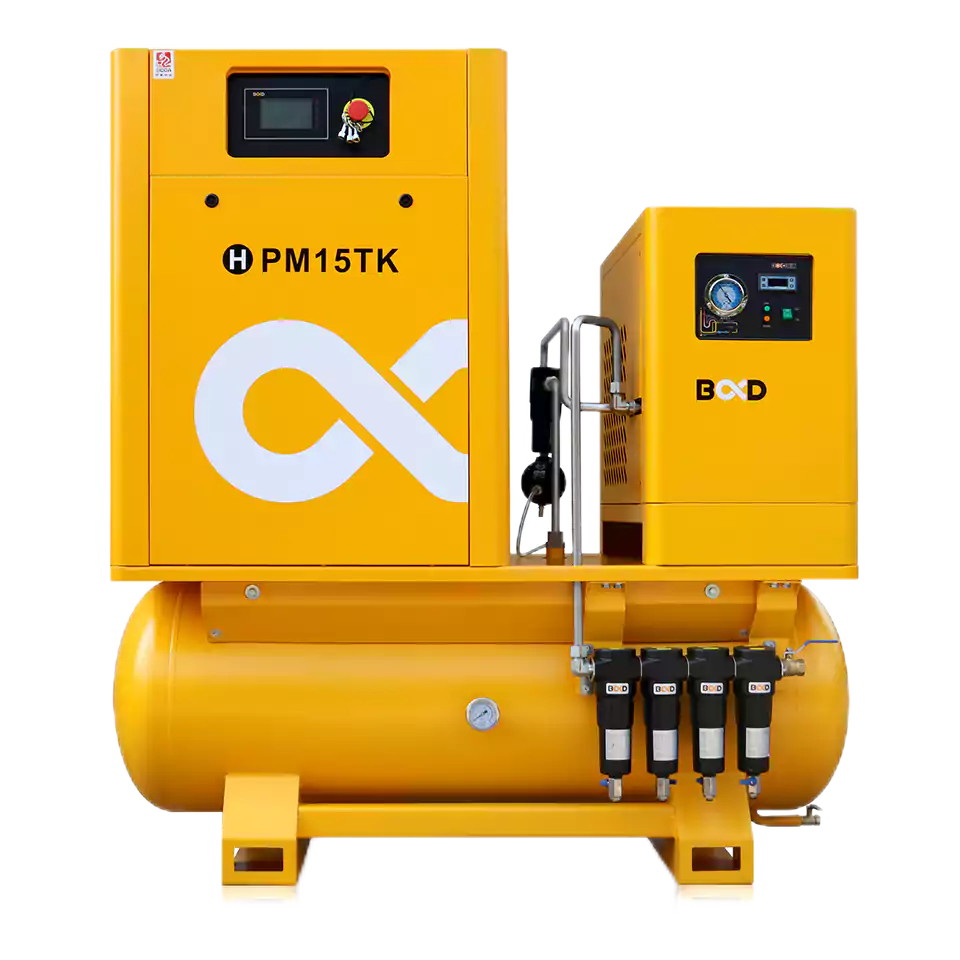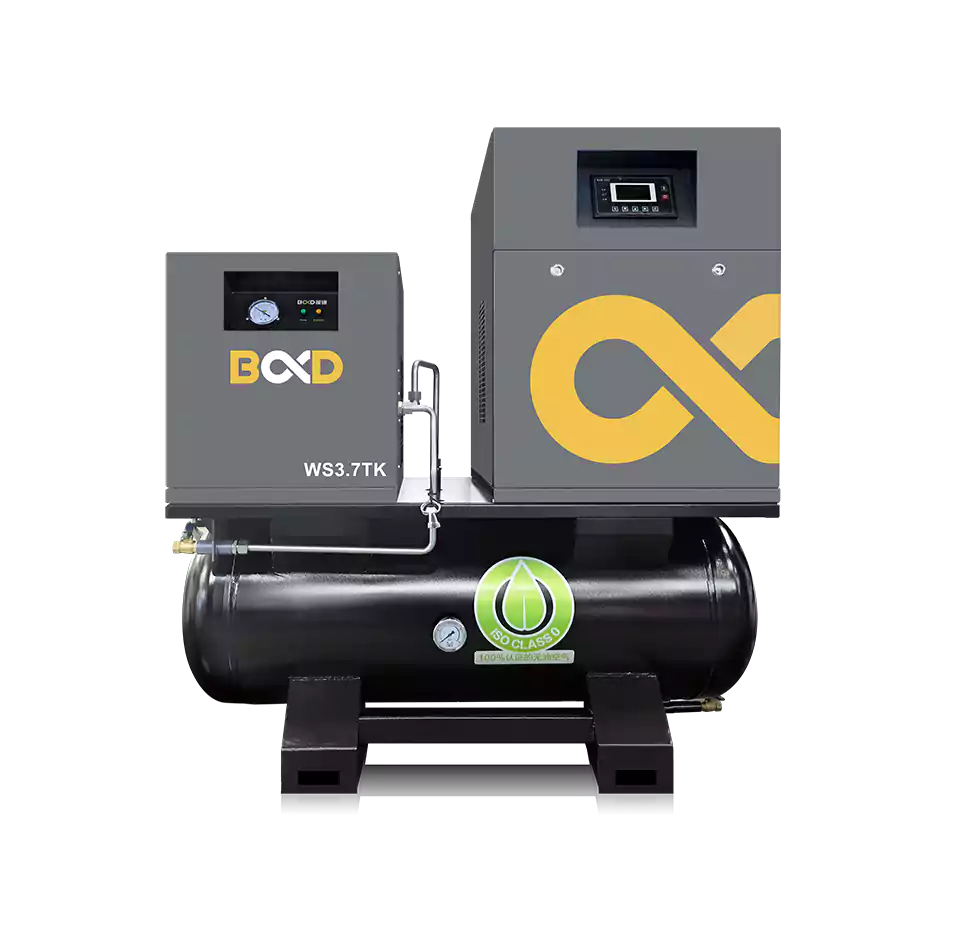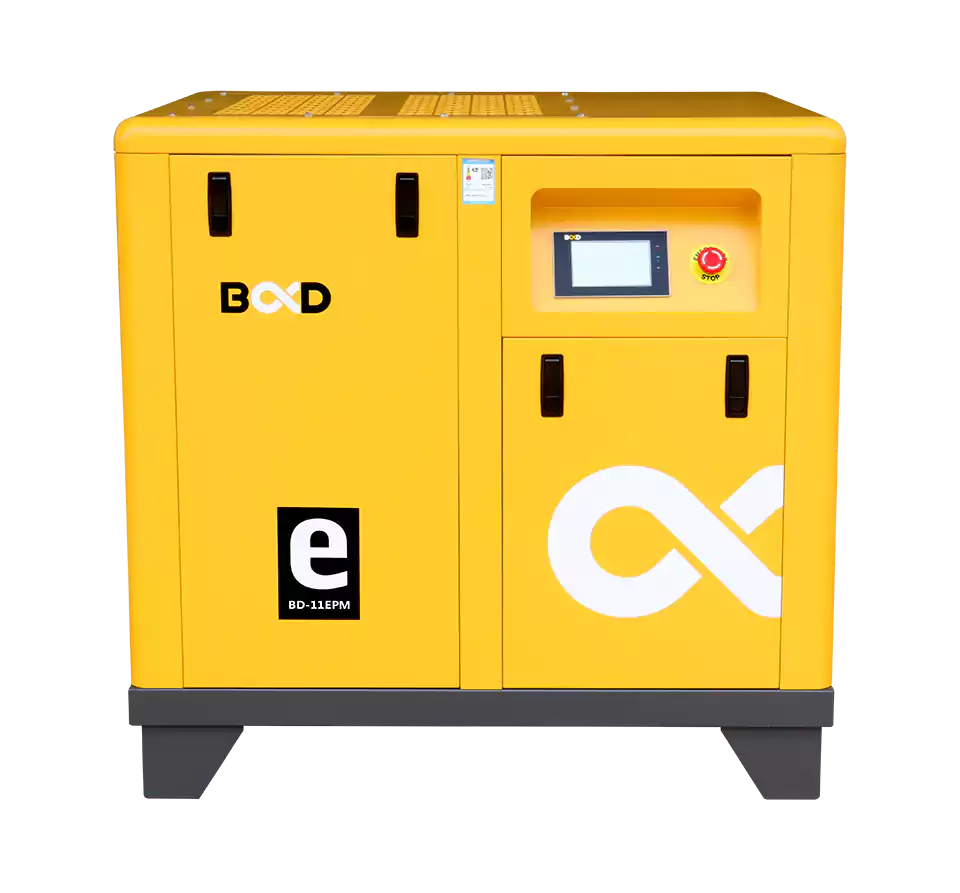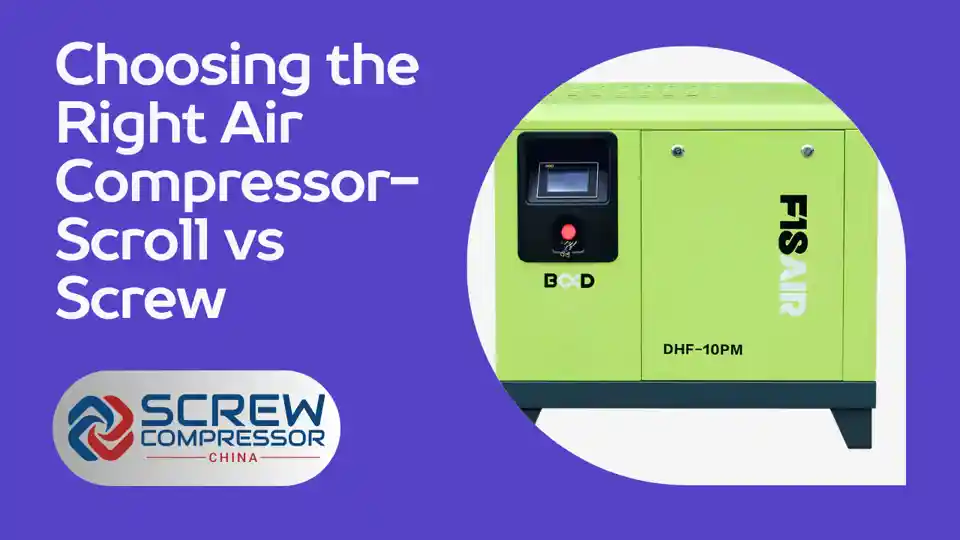
Selecting the right air compressor is crucial for maximizing efficiency and performance in various applications. This guide will help you understand the key differences between scroll and screw compressors, aiding in making an informed decision tailored to your needs.
Understanding Scroll Compressors
Operation and Advantages
Scroll compressors operate by interlocking two spiral-shaped scrolls, which compress air smoothly and efficiently. Known for their quiet operation, scroll compressors are ideal for environments where noise is a concern, such as laboratories or hospitals.
They are compact, making them suitable for indoor applications where space is limited. The scroll compressor’s unique design allows for a continuous compression process, resulting in minimal pulsation and vibration.
This smooth operation contributes to the compressor’s durability and longevity. Additionally, scroll compressors have fewer moving parts compared to other compressor types, which reduces the risk of mechanical failure and simplifies maintenance requirements.
Suitability and Efficiency
Scroll compressors are not only space-efficient but also demonstrate high energy efficiency, which can translate into significant cost savings over time. Their design allows for reliable operation, with the added benefit of multiple scrolls ensuring uninterrupted service even if one scroll fails.

Scroll compressors are particularly well-suited for applications with varying load demands, such as residential air conditioning systems and small commercial settings. Their ability to maintain consistent performance across a wide range of operating conditions makes them a versatile choice for many industries.
Understanding Screw Compressors
Operation and Applications
Screw compressors use helical screws to compress air continuously. This type of compressor is known for its robustness and high efficiency, making it ideal for heavy-duty industrial applications.
They can handle large volumes of air, essential for industries like manufacturing and pharmaceuticals. The screw compressor’s operating principle involves two intermeshing rotors, known as the male and female rotors.
As the rotors turn, air is drawn into the compressor and trapped between the rotors’ lobes. The volume of the trapped air decreases as it moves along the rotors, resulting in compression. This continuous compression process allows screw compressors to deliver a steady flow of compressed air.
Maintenance and Noise Considerations
Despite their power, screw compressors are engineered to operate with less noise, though they are generally louder than scroll compressors. They require regular maintenance, which is crucial for ensuring longevity and optimal performance in demanding settings.
Screw compressors typically have more moving parts compared to scroll compressors, which can result in higher maintenance requirements. However, advancements in screw compressor technology have led to improved designs that minimize wear and tear, extending the compressor’s lifespan and reducing maintenance needs.
Scroll vs Screw: Which Compressor is Right for You?
When comparing scroll and screw compressors, consider factors such as the operating environment, noise level tolerance, space availability, and specific air quality requirements. Screw compressors are preferred in environments with fluctuating air demand, thanks to their capacity to handle high loads efficiently.

Ultimately, the choice between a scroll and screw compressor depends on your unique application requirements. Scroll compressors excel in smaller-scale applications where quiet operation, compact size, and energy efficiency are prioritized.
On the other hand, screw compressors are the go-to choice for heavy-duty industrial settings that require continuous, high-volume compressed air delivery. It’s essential to consult with experienced professionals or compressor manufacturers to assess your specific needs and receive tailored recommendations.
They can provide valuable insights into the latest advancements in compressor technology and help you make an informed decision that aligns with your operational goals and budget constraints. By understanding the distinct features and benefits of both scroll and screw compressors, you can choose the best type based on your specific needs.
This decision will influence not only the efficiency and productivity of your operations but also the overall operational costs.
Frequently Asked Questions
What are the main advantages of scroll compressors?
Scroll compressors are highly efficient, operate quietly, and take up less space, making them perfect for sensitive environments where noise and space are concerns. Their smooth operation and fewer moving parts contribute to their reliability and ease of maintenance.
How do screw compressors handle heavy-duty applications?
Screw compressors are ideal for heavy-duty applications due to their robust design and ability to operate continuously under demanding conditions. Their high-volume air delivery and efficient compression process make them well-suited for industrial settings that require a steady supply of compressed air.
Can either type of compressor offer oil-free air?
Yes, both scroll and screw compressors can be designed to provide Class 0 Oil-Free air, essential for industries where air purity is critical. Oil-free compressors eliminate the risk of oil contamination in the compressed air, ensuring the highest level of air quality for sensitive applications.
Meta Description: Explore the differences between scroll and screw compressors to determine which one suits your industrial or residential needs best. Understand key factors like efficiency, noise levels, and maintenance for optimal selection.
